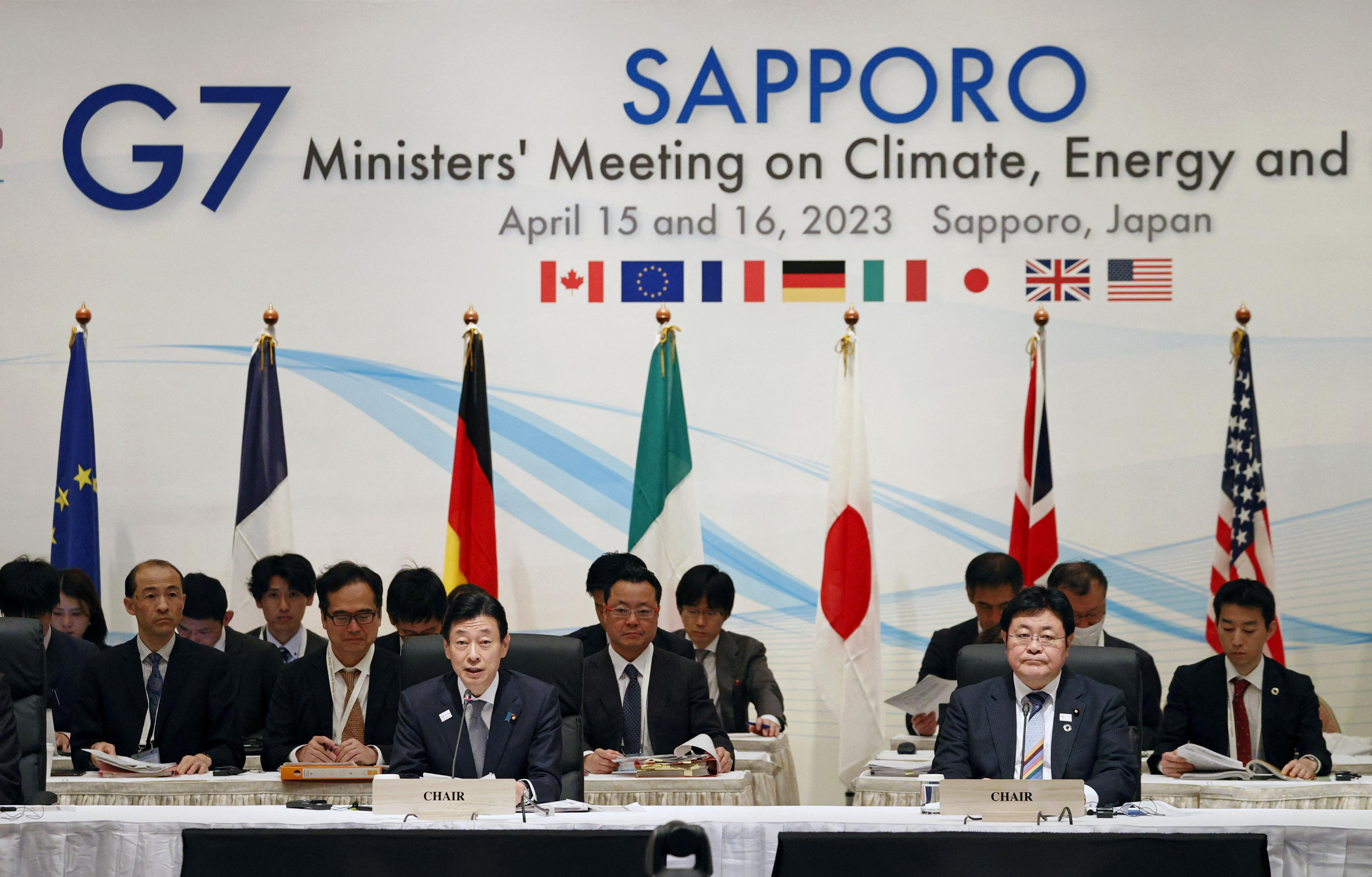
Image Credit: Google
 |
| Image Credit: Google |
SAPPORO, Japan, April 16: The G7 nations have agreed to accelerate
the transition to renewable energy and phase out fossil fuels, according to a
communique from the group’s climate, energy and environment ministers. The
group aims to collectively increase offshore wind capacity by 150 GW by 2030
and solar capacity to over 1 TW by the same date. The G7 also aims to end new
unabated coal-fired power projects globally as soon as possible and achieve a
fully or predominantly decarbonised power sector by 2035. It also called for greater
investment in the development of low-carbon and renewable hydrogen.
The communique recognised the importance of critical minerals for the clean energy
transition and stressed the need to counteract the economic and security risks
associated with vulnerable supply chains. The G7 reaffirmed its commitment to
ending plastic pollution, setting a goal of zero additional plastic pollution
by 2040. The group also committed to decarbonising the road sector by 2030 and
achieving net-zero emissions in the sector by 2050.
The G7 acknowledged nuclear energy’s potential to provide low-carbon energy and reduce dependence on fossil fuels, and pledged support for the development and
construction of nuclear reactors with advanced safety systems. However, the
group reiterated its commitment to accelerating the phase-out of unabated
fossil fuels and ending fossil fuel subsidies, which it said are inconsistent
with the goals of the Paris Agreement.
Conclusions:
1. Condemnation of Russia's
actions in Ukraine and commitment to green reconstruction
2. Gas investments to address
market shortfalls, subject to climate objectives and national strategies
3. Expansion of renewable
energy capacity and phase-out of coal-fired power plants
4. Use of low-carbon hydrogen
and ammonia to advance decarbonization across sectors
5. Importance of critical
minerals for the clean energy transition and need to prevent economic and
security risks
6. Commitment to accelerate
the phase-out of unabated fossil fuels and end fossil fuel subsidies
7. Commitment to nuclear
energy as a potential source of affordable low-carbon energy
8. Ambition to reduce
additional plastic pollution to zero by 2040
9. Commitment to highly
decarbonized road sector by 2030 and transition to zero-emissions transport
Post a Comment
0Comments